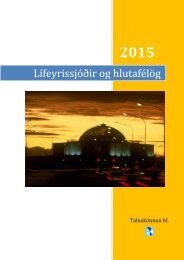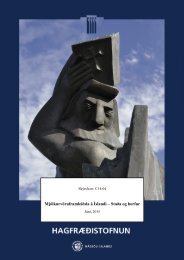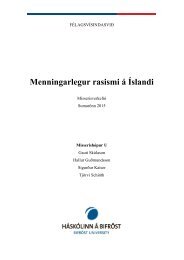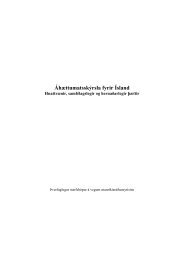Create successful ePaper yourself
Turn your PDF publications into a flip-book with our unique Google optimized e-Paper software.
WORLD REPORT 2016<br />
HUMAN RIGHTS WATCH<br />
Key International Actors<br />
The Intergovernmental Authority on Development (IGAD) continued to mediate<br />
peace talks in Addis Ababa, and teams of monitors on the ground reported on violations<br />
of a January 2014 cessation of hostilities agreement between the two<br />
sides. Uganda, an IGAD member, continued to deploy soldiers in South Sudan to<br />
shore up the government.<br />
China, the European Union, Norway, the United Kingdom, and the United States<br />
continued to support the peace process.<br />
In early March 2015, the UN Security Council adopted a resolution that established<br />
a sanctions regime for South Sudan. A sanctions committee has authority<br />
to impose travel bans and asset freezes on individuals and entities found responsible<br />
for human rights abuses, violations of international humanitarian law,<br />
or the recruitment of child soldiers.<br />
Sanctions have been imposed on six South Sudanese commanders from both<br />
government and opposition forces. Though the council in the March resolution<br />
did not impose an arms embargo on South Sudan, the council expressed its “intent<br />
to impose” any measures “appropriate to respond to the situation,” including<br />
an arms embargo. At time of writing, no Security Council arms embargo has<br />
been imposed on South Sudan. In May, the African Union Peace and Security<br />
Council called for the Security Council to “urgently consider” establishing an<br />
arms embargo on South Sudan.<br />
The UN Mission in South Sudan (UNMISS) continued to shelter tens of thousands<br />
of civilians forced to flee their homes because of attacks by forces from<br />
both sides. UNMISS peacekeepers struggled to protect civilians outside of their<br />
bases.<br />
In June, the UN Human Rights Council passed a resolution that dispatched a UN<br />
human rights mission to monitor steps taken to ensure accountability.<br />
Sri Lanka<br />
Elections in Sri Lanka brought about momentous changes after nearly a decade<br />
of increasingly autocratic rule. In January 2015, President Mahinda Rajapaksa’s<br />
government, in power since 2006, lost to a united opposition front led by<br />
Maithripala Sirisena, a former health minister. In August, Ranil Wickramsinghe,<br />
longtime leader of the largest opposition party, was elected prime minister.<br />
The new government quickly abolished surveillance and censorship of media<br />
and civil society groups, embarked on constitutional reforms to restrict executive<br />
powers, and took steps to restore the independence of the judiciary. In contrast<br />
to the combative approach of the Rajapaksa government, it also initiated a new,<br />
more open dialogue with the international community, including human rights<br />
organizations.<br />
However, the government took no significant measures to end impunity for security<br />
force abuse, including police use of torture. At time of writing, the government<br />
also had not yet repealed the draconian Prevention of Terrorism Act (PTA),<br />
despite promises to do so, and continued to detain people under it. Following a<br />
sustained hunger strike by an estimated 200 PTA detainees, the government in<br />
November released some on bail, sent others for rehabilitation, and pledged to<br />
charge and try the rest.<br />
In August, the United Nations Office of the High Commissioner for Human Rights<br />
(OHCHR) issued a scathing report on abuses committed by all sides during Sri<br />
Lanka’s 1983-2009 armed conflict with the secessionist Liberation Tigers of<br />
Tamil Eelam (LTTE). The report, which was mandated by a March 2014 Human<br />
Rights Council (HRC) resolution on Sri Lanka, documented credible accounts of<br />
unlawful attacks, killings, enforced disappearances, torture, sexual violence,<br />
and attacks on humanitarian assistance .<br />
Following the report, HRC member states endorsed a resolution calling on the Sri<br />
Lankan government to implement the report’s many recommendations, including<br />
to establish a special counsel to investigate and prosecute alleged wartime<br />
abuses, and to include foreign judges and prosecutors in a Sri Lankan tribunal.<br />
526<br />
527










